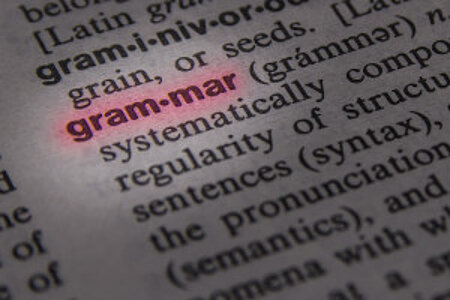Knowing Grammatical Modifiers Will Modify Your GMAT Score

Although students initially consider questions on the GMAT exam confusing, disciplined study has helped change that. The previous sentence is simple and clearly conveys the author's intended message. To master the GMAT exam you will need to forget about clarity and learn to read for the purpose of identifying answers, reading for pleasure or understanding should be done on personal time. The correct way to read the first sentence, the intended way for the GMAT exam, is to dissect the words and toss away anything unnecessary. What are the verbs? What nouns are the verbs attributed to? Students consider the GMAT. That is the core of the first part of the sentence. Every other word's purpose is to describe the core words. Exam, confusing, those words describe the GMAT. Initially describes when the students considered the GMAT. When studying the first part then comparing to the second it becomes clear that there is a flaw. The first part of the sentence is referencing a generalization taking place in the present. "Studying has helped" implies that the action of studying began at some point in the past and that the students are no longer confused. The two parts of the sentence don't match. The correct solution would be: Although students initially consider questions on the GMAT exam confusing, disciplined study helps change that opinion. This version of the sentence conveys the message that although students might at first find the test confusing, by following certain steps they will find the solution.
Why do the sentence correction questions look so confusing? It's because they are filled with information that is not necessary for identifying the correct answer. Modifiers are words that do just that, they modify the meaning of another word. An adjective, such as happy, is a modifier that could modify the meaning of a noun. The happy dog barks. The sentence could still function without the word happy: the dog barks. By stripping the sentence of the excessive word we are able to streamline the message and identify the necessary grammar.
A phrase could also be a modifier. Take for an example the following sentence: the camera along with all of the included accessories are on sale for a limited time only. This sentence is incorrect and requires a solution. "Are" needs to be replaced with "is" and the reason is because the verb is referring to the camera. The first step is to strip the sentence down to the essentials. The subject is the camera, not the camera and all of the included accessories. The words "along with" transform the phrase "all of the included accessories" into a modifier. That entire phrase can be removed and we immediately identify what is wrong with the sentence: the camera are on sale. The conjugation is incorrect, it should be: the camera is on sale. The phrase for a limited time only also acts as a modifier. These modifiers are misleading and clutter the phrase, distracting the reader from what is important. It is easier to see if a sentence has a grammatical error if you toss away any unnecessary words.
Sentences are composed of various parts. When reading a news article or an interesting novel no one pays attention to the sentence structure, and at times the sentence structure is unique for stylistic reasons. To master the verbal section of the GMAT, however, it is important to put aside any previous instincts about reading and learn to read strictly as a detective. Sentences should be treated like math equations and when you master the techniques for simplification every sentence correction problem will become clear as day.